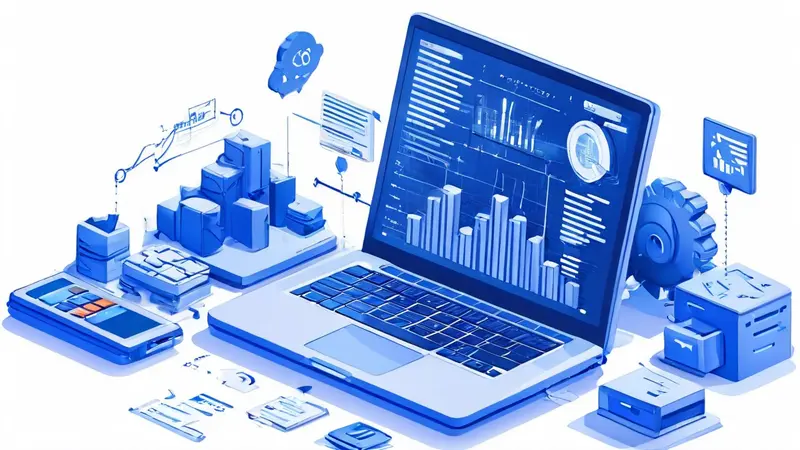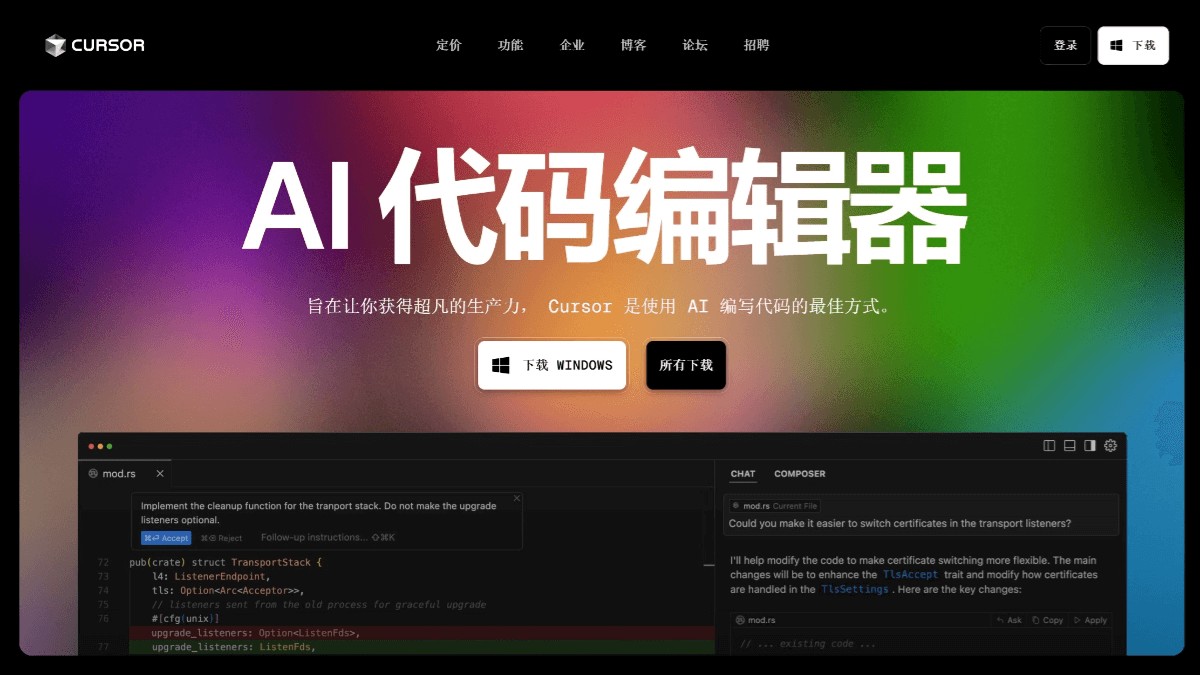There is a close relationship between semiconductor chips and artificial intelligence (AI) chips. Semiconductor chips are the basis of AI chips, and AI chips are highly specialized in AI applications of semiconductor technology. Semiconductor chips, as physical hardware, promote the development of artificial intelligence technology, especially through shrinkage process and energy efficiency optimization, which improves computing power, reduces power consumption, and improves cost-effectiveness, which is crucial to the AI field.
Among them, the progress of miniaturization technology is particularly important. As the density of transistors increases, the computing power of the chip increases significantly and the power consumption decreases significantly. For AI chips, this means that complex computing tasks can be completed in a smaller space and maintain low energy consumption, which is very suitable for AI applications that require a large amount of parallel computing. Therefore, breakthroughs in microminiature technology not only promote the development of computing technology, but also accelerate the progress and application expansion of artificial intelligence technology.

The fundamental role of semiconductor technology is that it provides the core computing and storage units for various electronic devices. Artificial intelligence chips, a specialized category within this broad field, take advantage of the latest advances in semiconductor technology. From new discoveries in materials science to advances in microelectronics technology, they all directly affect the performance and efficiency of AI chips.
In terms of technical interaction, as the demand for AI continues to increase, higher requirements are placed on semiconductor technology. For example, in fields such as deep learning and machine vision, there are extremely high requirements for parallel processing capabilities and data throughput, which has promoted specialized AI such as GPU (Graphics Processing Unit) and TPU (Tensor Processing Unit). Processor Development.
In terms of the professional development of AI chips, with the deepening of artificial intelligence applications, ordinary CPUs (central processing units) and GPUs are gradually unable to meet the dual requirements of efficiency and energy consumption, and the market demand for more specialized AI chips is increasing day by day. . This specialization is not only reflected in the optimization of the chip architecture, but also in the in-depth customization of specific AI algorithms and application scenarios.
For example, for the reasoning and training of neural networks, a variety of dedicated AI chips have appeared on the market. They have significantly improved their performance through internal architecture adjustments (such as adding more parallel processing units), software and hardware co-design, and optimization of specific algorithms. This improves efficiency and performance.
Market demand is a key factor in promoting the joint progress of artificial intelligence chips and semiconductor technology. From smartphones, self-driving cars to data centers, the application scenarios of artificial intelligence continue to expand, which directly drives the demand for high-performance, low-power AI chips.
At the same time, with the advancement of technology and reduction of costs, these chips have begun to enter a wider range of consumer electronics products, such as smart home equipment, smart photography, and personal health monitoring equipment, further expanding the market size and promoting technological innovation and Iterate.
In the future, the development of semiconductor technology and artificial intelligence chips will be more closely integrated. Innovations in materials science, design methodologies, and manufacturing processes will continue to drive performance breakthroughs in AI chips. The introduction of new semiconductor materials such as GaN (gallium nitride) and SiC (silicon carbide) is expected to bring higher efficiency and lower power consumption to AI chips.
On the other hand, with the exploration of cutting-edge technologies such as quantum computing and neuromorphic computing, future artificial intelligence chips may no longer be limited to traditional semiconductor materials and technologies, but will open up a new computing paradigm. This will be another major leap in the history of the development of semiconductor technology and artificial intelligence.
In this journey of technological innovation, the relationship between semiconductor chips and artificial intelligence chips will become increasingly close, jointly promoting artificial intelligence technology to broader application prospects.
1. What aspects make semiconductor chips related to artificial intelligence chips? There is a close relationship between semiconductor chips and artificial intelligence chips. First of all, semiconductor chips are the basis of artificial intelligence chips, and they are the core components for realizing artificial intelligence computing. The semiconductor chips in artificial intelligence chips undertake important functions such as data processing, model training and reasoning. Secondly, advances in semiconductor technology directly promote the development of artificial intelligence chips. Innovations in semiconductor technology enable artificial intelligence chips to have higher computing performance, faster processing speeds and lower energy consumption.
2. Why do artificial intelligence chips require specialized semiconductor design? Artificial intelligence chips require specialized semiconductor design because traditional general-purpose microprocessors cannot meet the needs of artificial intelligence computing. Artificial intelligence chips need to have a high degree of parallel computing capabilities and can process large amounts of data and complex algorithms simultaneously to achieve artificial intelligence tasks such as image recognition, speech recognition, and autonomous driving. Therefore, the design of artificial intelligence chips needs to be based on the characteristics of deep learning and neural networks, using specialized architectures and algorithms to improve computing efficiency and performance.
3. What is the future development direction of semiconductor chips and artificial intelligence chips? The future development direction of semiconductor chips and artificial intelligence chips is towards higher performance and lower power consumption. With the increasing popularity and development of artificial intelligence applications, the requirements for semiconductor chips are becoming higher and higher. Future semiconductor chips will continue to pursue higher computing performance, faster data processing speeds and lower energy consumption. At the same time, the development of artificial intelligence chips will also focus more on the customized design of specialized chips to meet specific application needs in different scenarios. In addition, technologies such as collaborative computing, edge computing and quantum computing will also be combined with semiconductor chips and artificial intelligence chips to provide more powerful computing capabilities for the future intelligent society.



